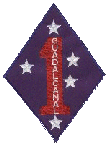panda124c
Posts: 1692
Joined: 5/23/2000
From: Houston, TX, USA
Status: offline

|
[QUOTE]Originally posted by Larry Holt
[B]I would like to add that destroyers got their name and their initial role was PT boat destroyers. This is because in the WWI era PT boats were going after capital ships. That they were not too successful in the UV time and location is more due to the wide operational area rather than any shortcomings in the possibile uses of PT boats. [/B][/QUOTE]
Actually the torpedo was developed and the Torpedo boat was designed to launch them against capital ships. So to counter them the Torpedo Boat Destroyers were created with lots of rapid fire guns. Then someone had the bright idea, that Torpedo Boats were not very sea worthy and had short range and the Torpedo Boat Destroyers were plenty fast to catch capital ships, were much more sea worthy and had guns to defend themself so why not put torpedos on Torpedo Boat Destroyers. Thus was born the modern Destroyer. So the Torpedo Boats were replaced with the Destroyers. But the Patrol Boats were still very useful and by adding Torpedos they could be even more useful in coastal areas thus creating the Patrol Torpedo Boat. Incendently the British had Motor Torpedo Boats (MTB) with very light guns with torpedos and as a counter to the German E boats they had Motor Gun Boats (MGB) without torpedos but with larger guns (6 lb's). The American PT's were modified to match the situation they found themselfs in by adding more guns and larger guns, they were much more flexible. So eventually they became Gun Boats with a side line of torpedoing any capital ships they came across. Interestinly the depth charge became the major weapon in the Med being used against coastal shipping in shollow water set for shallow depth the depth charges would break the back of very large ships, transports, barges, F-Liter, etc. There is a good book, which I don't remember the name of, written by the grandson of Charles Dickens about the British MTB operation, he was an MTB commander. And one should not forget excelent book 'At Close Quarters' by Capt. Robert J. Bulkley, Jr. Sorry I'm getting long winded.:D
|
 Printable Version
Printable Version







 New Messages
New Messages No New Messages
No New Messages Hot Topic w/ New Messages
Hot Topic w/ New Messages Hot Topic w/o New Messages
Hot Topic w/o New Messages Locked w/ New Messages
Locked w/ New Messages Locked w/o New Messages
Locked w/o New Messages Post New Thread
Post New Thread